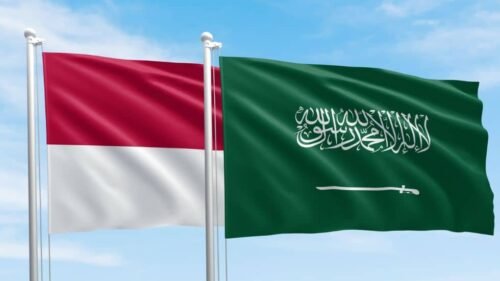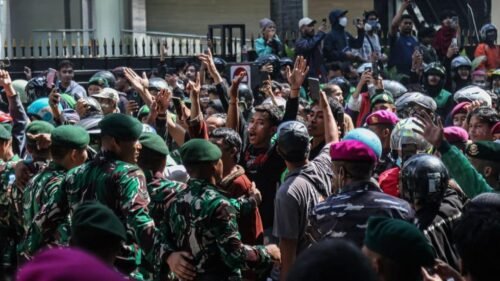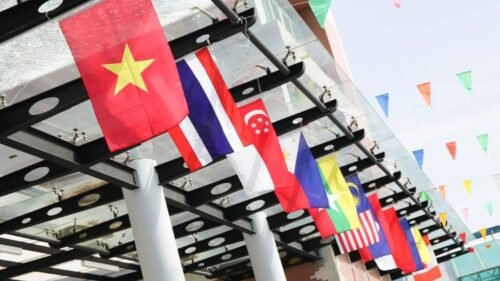Indonesia’s stewardship of Timor-Leste’s accession to the Association of Southeast Asian Nations (ASEAN) is not just about regional solidarity. Rather, it’s a strategic necessity for both nations and Southeast Asia’s collective resilience. ASEAN is a regional organization that has ten member states: Brunei, Cambodia, Indonesia, Laos, Malaysia, Myanmar, the Philippines, Singapore, Thailand and Vietnam, to foster economic growth, regional stability and security.
Two decades after gaining independence in 2002, Indonesia and Timor-Leste have built “close-brother” ties based on shared history. The former Indonesian province endured 24 years of occupation before emerging as a sovereign nation with a GDP per capita of only $1,454 — barely a sixth of the ASEAN average. Timor-Leste’s economic vulnerability, in addition to its weak adult literacy rate of 68%, in comparison to ASEAN’s 90%, highlights why Jakarta’s guidance is more important for the small nation, now more than ever.
Institutionalizing Indonesia’s support
Since July 2023, Timor-Leste has been governed by the 9th Constitutional Government under Prime Minister Kay Rala Xanana Gusmão, a veteran of the independence movement. His administration has launched wide-ranging reforms — from infrastructure upgrades and digital connectivity to justice sector modernization and decentralization efforts. These initiatives reflect a strategic pivot toward sustainable development, regional integration and institutional capacity-building, aligning with ASEAN’s benchmarks and Indonesia’s mentorship goals.
These reforms not only signal Dili’s readiness for ASEAN membership but also underscore the urgency of embedding Timor-Leste’s development within regional frameworks that ensure continuity and accountability.
Indonesia’s own journey — from colonial subjugation by the Dutch and Japanese to post-Reformasi decentralization — offers indispensable lessons in institution-building. Japan’s Fukuda diplomacy showed how middle powers can sustain stability through patient, structured engagement long after formal aid ends. Indonesia can mirror this approach.
Between 2022 and 2024, it channeled approximately $160 million into Timor-Leste’s road and port infrastructure, alongside extensive vocational and military training for Timorese personnel. Embedding these initiatives within ASEAN institutions — such as the ASEAN Coordinating Centre for Humanitarian Assistance — will anchor them in a regional framework and ensure their durability beyond bilateral goodwill.
Indonesia and international mediators crafted the 2005 Helsinki Memorandum of Understanding, anchored in gradual autonomy and genuine local ownership, to resolve long-standing conflict and reestablish Acehnese self-governance. The Timorese roadmap to ASEAN membership must similarly embrace step-by-step institution-building built on Dili’s own priorities.
Phased entry and ASEAN diplomacy
Timor-Leste’s “in principle” admission in 2022 under Cambodia’s chairmanship reflected consensus-building at its best, yet ratification of more than 300 regional agreements remains incomplete. Jakarta must leverage its 2008–2024 chairmanship experience to broker a phased integration; first securing observer status in ASEAN sectoral bodies, then granting dialogue-partner privileges in community councils — allowing Dili to contribute to policies on disaster management and trade without the full compliance burden.
Framing Indonesia’s support for Timor-Leste through Putnam’s Two-Level Game underscores that Dili must win both the domestic “level-two” reforms — strengthening its civil service, legal codes and economic governance — and the regional “level-one” consensus among ASEAN capitals. This includes securing backing from countries like Laos and Vietnam for a gradual entry via observer status.
Cambodia’s accession to ASEAN in 1999 offers critical lessons for Timor-Leste’s path forward. Despite concerns over governance and institutional fragility, ASEAN adopted a gradual approach, allowing Cambodia to integrate into sectoral bodies over time while receiving targeted capacity-building support. Timor-Leste presents similar institutional challenges, yet also the opportunity to improve on that model. A phased roadmap, informed by Cambodia’s case but fortified with stronger accountability measures and deeper mentorship from Indonesia, could ensure that Dili’s integration is both legitimate and lasting.
Countering China with a regional strategy
China’s expanding footprint in Timor-Leste, which is reflected in its “white elephant” infrastructure projects exceeding $500 million, raises strategic concerns for ASEAN’s unity. To counterbalance this, Jakarta’s task is to offer a compelling alternative: an “ASEAN Development Corridor” linking Nusa Tenggara Timur with the Oecusse Special Zone via a free-trade border arrangement. Such an initiative, built on the ASEAN Infrastructure Fund, would inject $200 million annually into cross-border small and medium enterprises (SMEs), reducing Dili’s reliance on bilateral creditors and strengthening regional supply chains.
Moreover, Indonesia must champion a “Timor-Leste Capacity Compact” under Article 28 G of the ASEAN Charter. This compact would mobilize UN Development Programme (UNDP), UN Trade and Development (UNCTAD) and ASEAN Secretariat resources to upskill Timorese civil servants in regulatory negotiation, customs enforcement and digital governance — sectors where Dili currently operates at less than 50% of ASEAN benchmarks. Integrating UN Good Governance guidelines would ensure transparency, while performance-based grants would reward progress in harmonizing health, sanitary and phytosanitary (SPS) and trade standards.
Through a process of norm diffusion — much as Cambodia internalized the Treaty of Amity’s principles in its own legal and diplomatic culture (e.g., the 1999 parliamentary amendments explicitly citing TAC clauses) — Timor-Leste’s Capacity Compact can serve as the conduit for ASEAN values to become deeply rooted in Dili’s institutions.
Soft power and maritime partnerships
Cultural diplomacy remains an untapped asset in regional integration. The inaugural ASEAN Youth Dialogue in July 2023 brought together 68 young leaders from across the region and the Republic of Korea, yet its one-off format and limited scale left ample room for deeper engagement. Indonesia can build on this momentum by establishing an annual ASEAN–Timor–Leste Fellowship, sponsoring 100 emerging Timorese and Indonesian leaders to undertake internships in Jakarta’s ministries and ASEAN institutions. Embedding this people-to-people initiative within ASEAN’s youth framework would deepen mutual understanding, strengthen shared identity and ensure that unity is not just a slogan but a lived reality.
Lastly, Jakarta must mirror its Pacific Islands partnerships by sponsoring Timor-Leste’s involvement in blue-economy ventures under UN Convention on the Law of the Sea’s (UNCLOS) Part XIV guidelines. A trilateral “Lombok-Dili Seascapes Initiative” could protect coral reef biodiversity while developing sustainable fisheries — combining Australia’s marine science expertise, Indonesia’s archipelagic knowledge and Timor-Leste’s sovereign waters. This project would signal ASEAN’s capacity to lead on maritime sustainability, countering external narratives of regional marginalization.
By refining this phased model with accountability benchmarks and regional cooperation mechanisms, ASEAN can ensure Timor-Leste becomes not just a member, but a resilient and credible contributor to Southeast Asia’s strategic future.
Australia’s own Indo-Pacific strategy emphasizes “practical cooperation”, and Canberra stands ready to co-finance these initiatives through the Department of Foreign Affairs and Trade’s (DFAT) Regional Economic Cooperation and Infrastructure Facility. Together, Jakarta and Canberra can ensure that Timor Leste’s ASEAN membership is not a symbolic milestone but a catalyst for genuine development, regional stability and shared prosperity. Indonesia’s role as mentor and “big brother” will demonstrate that ASEAN’s promise of “one community” extends beyond membership to active guardianship — transforming Timor-Leste from a potential weak link into a confident, contributing pillar of Southeast Asia’s future.
[Aysha Sadak Meeran edited this piece.]
The views expressed in this article are the author’s own and do not necessarily reflect Fair Observer’s editorial policy.
Support Fair Observer
We rely on your support for our independence, diversity and quality.
For more than 10 years, Fair Observer has been free, fair and independent. No billionaire owns us, no advertisers control us. We are a reader-supported nonprofit. Unlike many other publications, we keep our content free for readers regardless of where they live or whether they can afford to pay. We have no paywalls and no ads.
In the post-truth era of fake news, echo chambers and filter bubbles, we publish a plurality of perspectives from around the world. Anyone can publish with us, but everyone goes through a rigorous editorial process. So, you get fact-checked, well-reasoned content instead of noise.
We publish 3,000+ voices from 90+ countries. We also conduct education and training programs
on subjects ranging from digital media and journalism to writing and critical thinking. This
doesn’t come cheap. Servers, editors, trainers and web developers cost
money.
Please consider supporting us on a regular basis as a recurring donor or a
sustaining member.
Will you support FO’s journalism?
We rely on your support for our independence, diversity and quality.








Comment